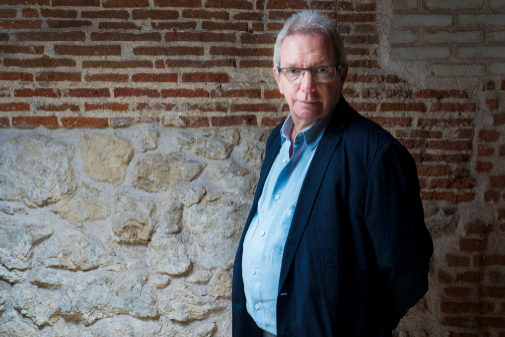- Newspaper library Read all the interviews of the counter
Argentine psychoanalyst born in Kansas City and with residence and consultation in Barcelona. Reporter of the life of Sigmund Freud, whose anniversary they celebrate this week at the Sepharad House and the Austrian Embassy.
How did a branch of the Freud family arrive in Buenos Aires? Freud's father was my grandfather's brother, who was one of those Galitza Jews fleeing from progromes and hunger. They were heading towards the north of Poland and there they embarked on the first ship there was, anyone, to take wherever it led. Some arrived in Rio, others in Mexico and my grandfather, in Argentina ... I read that the Freud were a family of more or less prosperous merchants. They prospered in that generation. He left with 15 years as a simple workforce. Argentina was then a country that gave many opportunities and came forward as a businessman. He had a lot of contact with Sigmund because he was determined to save his 14 brothers from the Holocaust. Three survived. The other 11 died in the concentration camps, just like five Sigmund sisters. Was he a person tormented by it? He was a hurt person. I was sad. What do you think is the great popular misunderstanding about Freud and psychoanalysis? Is there any misunderstanding? The world has been discussing Freud for a century, because, as he said himself, it was too revolutionary for its time. Freud told us: we do not own ourselves, something within us governs us, there is a sexual life in childhood, there is no normality ... They are all ideas that break taboos, they are hard. Even now, all of us who play against the system, those who do not want to give medicine, all those who attack pharmaceutical companies, are gathered around Freud. But the bad ones are not us, they are the others. Do you see psychoanalysis and its culture as a form of rebellion? I see it as a revolutionary way of seeing the world, a way of being a contestant, of not being a little lamb anymore. that psychoanalysis was created for a world in which the problem was repression and anxiety; On the other hand, the problem in 2019 is boredom and lack of appetite, but psychoanalysis also advances and adapts to each society to help people get better. Psychoanalysis helps identify and understand desires. Don't you think that is useful for the teenagers that I work with, who have problems to relate personally and are hooked on their screens? Would you tell me an idea, a problem that synthesizes your work with teenagers? Teenagers are very lonely. That is the big issue; then, within that theme there are as many variations as cases. The experiences I have had with psychologists and those that friends tell me always have the same message: be more lax in relation to life, take it easy. This is not always the case, there are people who need more rigidity and others, more laxity. It's a matter of finding the point in each person. I have frustrated psychiatrist friends because their patients never get cured. They alleviate, but they don't really cure. Psychiatrists treat more serious illnesses, I know. But I also have cases that I know I can't cure. I accept failure as part of my work. I read the biography of De Roudinescu de Freud. He said that, being so transgressive, he was a conservative man in his tastes. If Freud was a scholar of Don Quixote , he could not be an avant-garde scholar. But I knew them, because Jewish education consists in knowing very well in which world one lives.According to the criteria of The Trust Project
Know more- Psychology
- Barcelona
- Final Interview
The final interviewKiko Veneno: "In Catalonia is the vanguard of the 'mamahostias'"
Adrián MateosThe best poker player in Spain: "I dedicate eight or ten hours every day, it's like working in a bar"
The final interview Luis Solano, editor: "A book no longer competes with another book, but with Instagram, the series or go for drinks"

